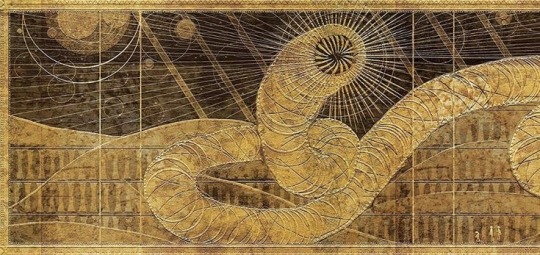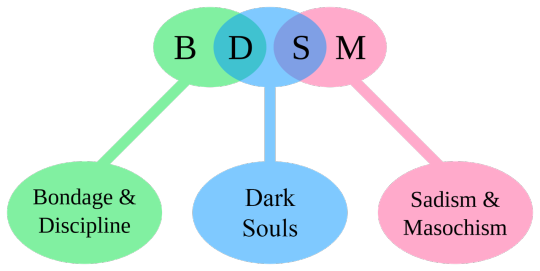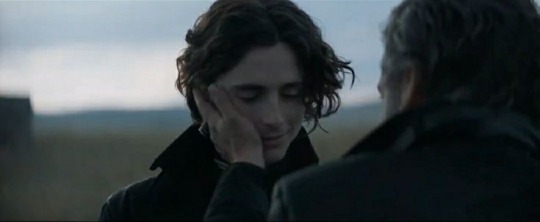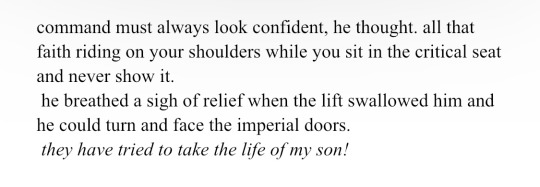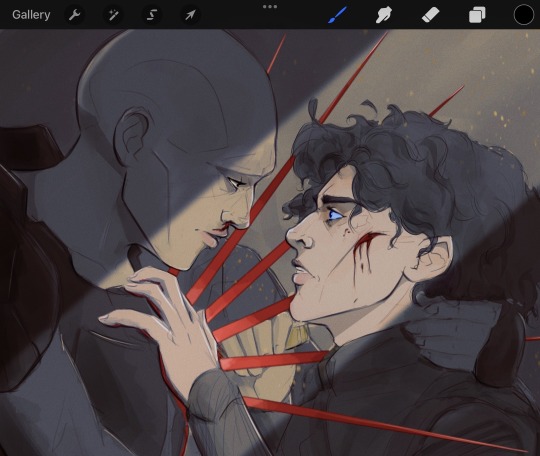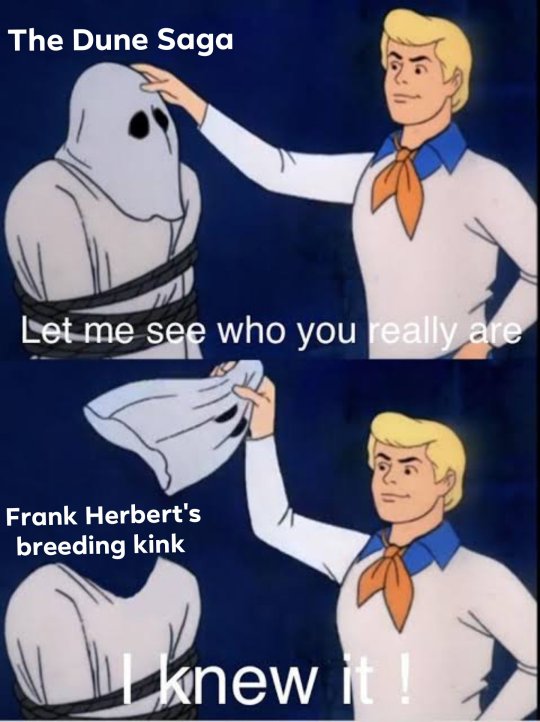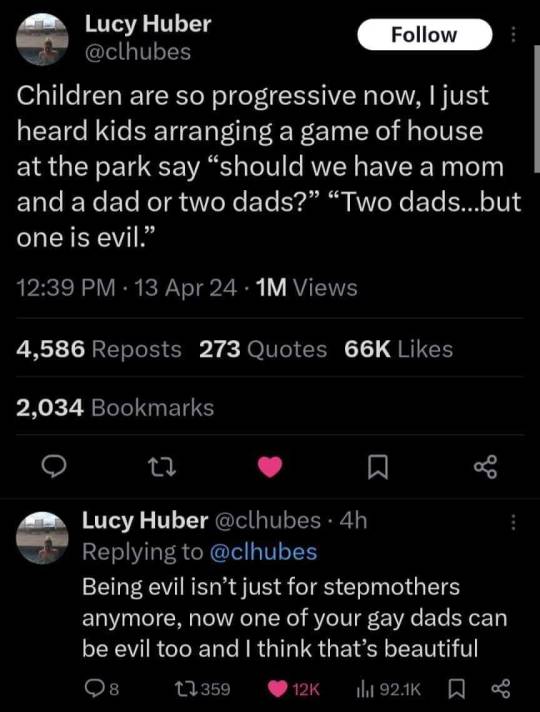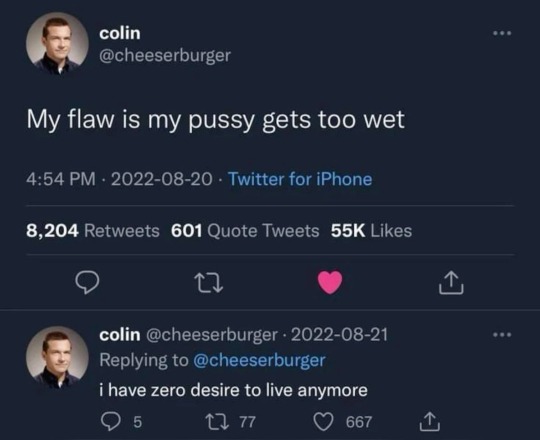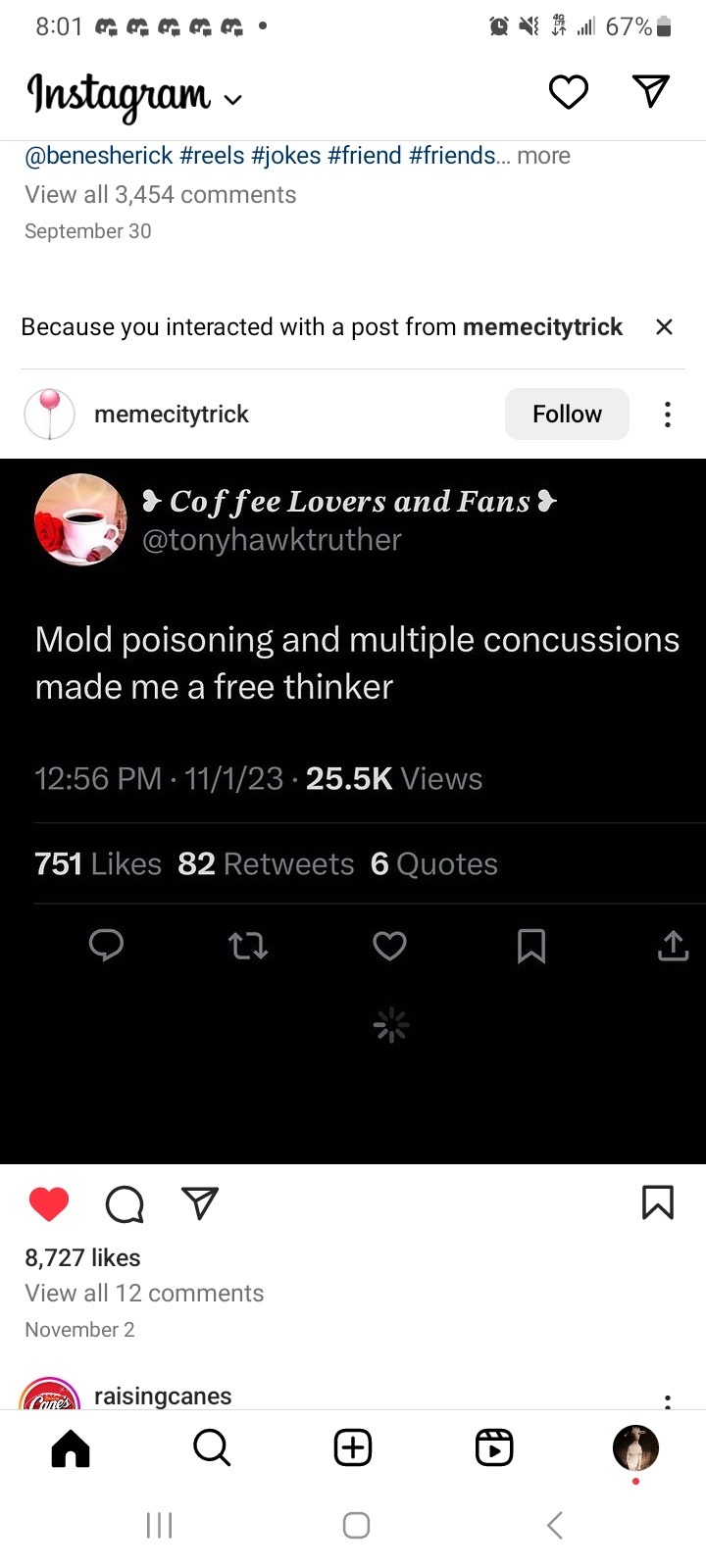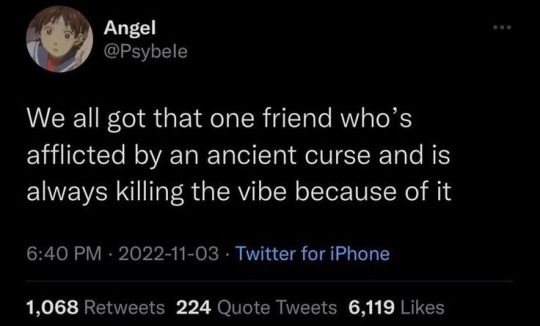Text
One of the most interesting things about the Atreides characters to me is the constant tension between formal and informal power dynamics going on in that House.
Leto and Jessica seem to have a fairly equitable relationship where they genuinely love and respect each other. This rests entirely on the fact that Leto is generally a Good Dude on an interpersonal level, who like, sees Jessica as a person and recognizes and appreciates her intelligence, skills and political acumen. While concubine to the head of a Great House seems to be a fairly high-status role in their world, we know it is not equal in social standing to the role of a wife, and certainly not equal to the male head of the House. Leto does treat Jessica as his equal informally, but by the social rules of their world he certainly doesn't have to.
Similarly, Leto treats Gurney, Duncan and Thufir like trusted colleagues and confidantes, and while they formally treat him with a certain amount of deference (addressing him as Sire or my Lord and accepting that he will be the final authority on things), it's also clear that informally, none of them are hesitant to speak their minds in front of him, offer suggestions or contradict him on something.
Paul's relationships with Duncan and Gurney are similarly complex. They're both older than him and serve as his mentors/teachers. Neither of them are afraid to tease him, challenge him, or reprimand him when they think he's doing something risky. They love him in an almost-familial way and would protect him with their lives. It seems like Paul would like to be friends with them on equal terms. But formally they are both his servants. Or, more precisely, while Leto is alive they are his father's servants and know they have Leto to answer to if anything should happen to his son.
The moments when the formal power dynamics assert themselves are always fascinating. When Paul and Gurney are first reunited, I would say Gurney is still treating Paul like a Duke's son and not a Duke. He's loyal and he is overjoyed to know Paul is still alive, but he still calls Paul by his first name and talks to him like he's giving advice to someone who's still learning. But then there is that moment when Paul pulls rank and gives Gurney a direct order to go to the south and Gurney's demeanor immediately shifts. He only ever addresses Paul as my Lord after that, and he treats him with a deference that makes it clear they are lord and vassal, not friends or family members.
(And like, technically once Leto is dead, Paul is the Duke and everyone in House Atreides is Paul's vassal--including Jessica. Practically when it comes to Paul giving Jessica an order she does not want to follow...well I would like to see him fucking try.)
Leto's leadership style with those close to him seems very much based on creating a familial, mutually protective vibe that wins him intense loyalty. (It is really interesting to see him try this on Stilgar who doesn't buy it for a second.) We see Paul try to emulate that, possibly with an even more intense longing for relationships of genuine equality that's born out of growing up with no peers of his same age and status around him.
But there is still always a little bit of power imbalance, because the chill vibes rely entirely on the continued benevolence of the Atreides men, and that benevolence can be withdrawn at any time.
121 notes
·
View notes
Text
In 1944 a kitten named George (short for General Electric) was saved from drowning by a U.S. Navy crew member. George was then photographed and given a liberty card and detailed health record. Source.
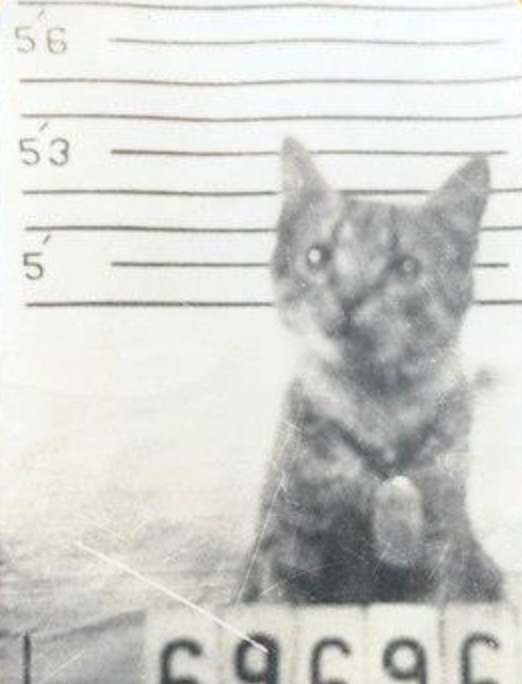

190K notes
·
View notes
Text
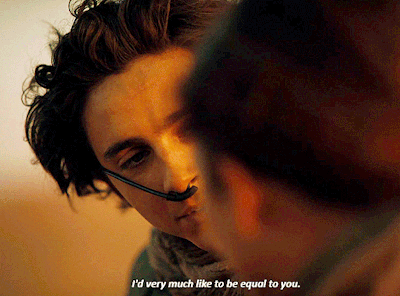
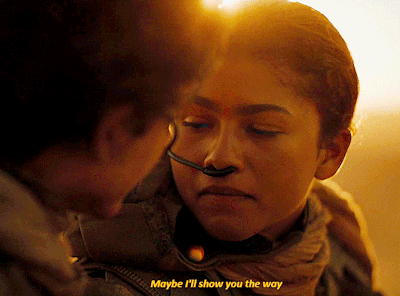
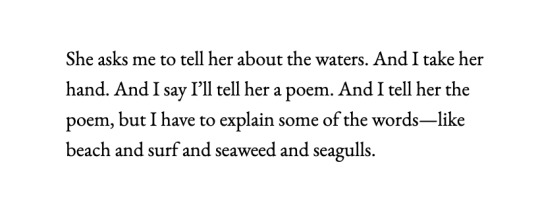


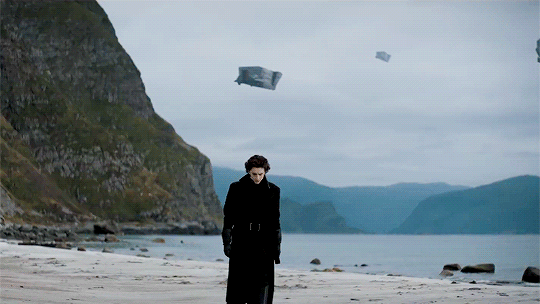
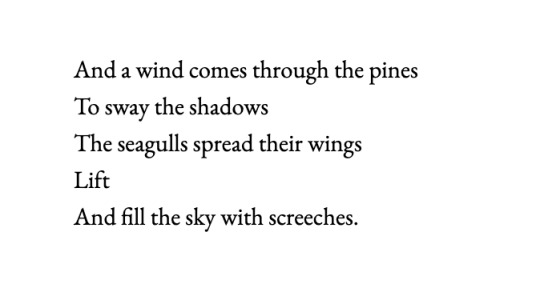
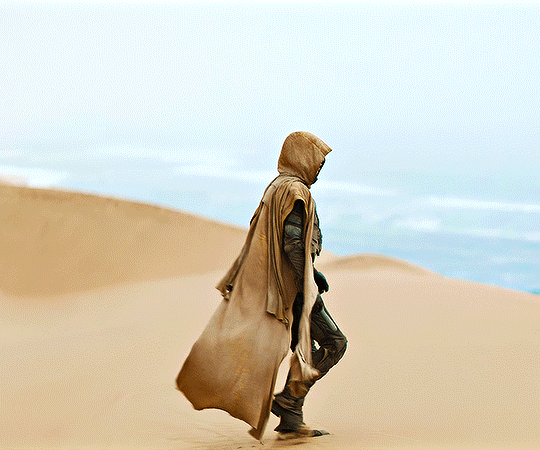
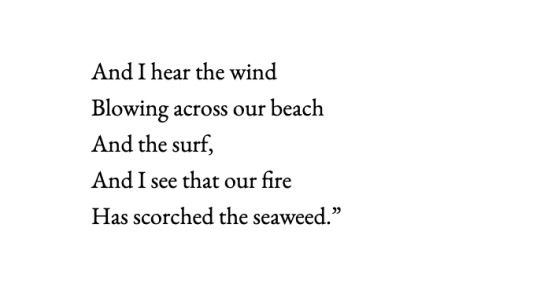

DUNE: PART TWO (2024) dir. Denis Villeneuve
DUNE: PART ONE (2021) dir. Denis Villeneuve
DUNE (1965) Frank Herbert
177 notes
·
View notes
Text
While this article does not answer my #1 burning question of how you dismount from a speeding sandworm, there are a lot of great pull quotes, including:
On Paul and Chani:
"...I wanted to make sure the audience will understand that Paul becomes a dark figure, that his choices are exactly what Chani was afraid of. He becomes the colonizers the Fremen were fighting against.... He betrayed her in many ways. But the big thing for Chani is that it’s not about love. It’s about the fact that he becomes the figure that will keep the Fremen in their mental jail. A leader that is not there to free the Fremen, but to control them."
On the duel between Paul and Feyd-Rautha:
"...we approached their fight at the end like some kind of symbolic union. The way their bodies get close to one another, there’s something animalistic, an intimacy, I was looking for."
On the infamous popcorn bucket:
"I’m at peace with the bucket."
Full article text under the cut, including Fremen sex lives, murder toddler adaptation choices, and the teeny tiniest of teasers for Dune Messiah:
Denis Villeneuve Answers All Your Questions About ‘Dune: Part Two’
He explains why Lady Jessica’s face is so heavily tattooed, whether Paul considers himself the Messiah and what he thinks of those Javier Bardem memes.
By Amy Nicholson
April 17, 2024
This weekend, “Dune: Part Two” muscles back into IMAX theaters with the verve of Timothée Chalamet rodeo-riding a giant sandworm. After nearly two months in theaters, the film is the current champion of this year’s box office race, with a total take of more than $680 million. (It’s also available to rent or buy on some streaming platforms.) The film’s success is thanks in part to audiences that have returned over and over to get lost in the rocky warrens and spiritual reckonings of the planet Arrakis. One admirer reports he’s seen the movie 25 times to date.
That there’s so much to explore in “Dune: Part Two” is a credit to its writer and director, Denis Villeneuve, who boldly reshaped Frank Herbert’s complex and cerebral 1965 novel “Dune.” Villeneuve split the book and its themes into two films: “Dune: Part One,” released in 2021, focused on the political struggles between two families, the Atreides and the Harkonnens. “Part Two” delves into religious fervor as the two surviving Atreides, young Paul (Chalamet) and his mother, Lady Jessica (Rebecca Ferguson), ingratiate themselves with Arrakis’s Indigenous desert tribe, the Fremen, by allowing the locals to believe that Paul is their Messiah — a prophecy that, if it comes to pass, will mean the slaughter of billions of victims across the galaxy.
Villeneuve has yearned to tell this story since he was a teenager in Quebec. His devotion is palpable; every frame feels steeped in monkish contemplation. Yet, he’s also a visual dramatist who doesn’t want audiences to get tripped up by too much exposition. His scripts give only passing mention to core concepts like spice, a psychedelic dust that powers everything from space travel to Paul’s clairvoyant hallucinations.
Though Villeneuve doesn’t want to overexplain, he was willing to provide some answers in an interview via video where every question about the film — even silly questions! — was on the table.
Does Chalamet’s Paul Atreides actually believe he’s the Messiah? What’s the meaning of Jessica’s face tattoos? Villeneuve also got into the erotic lives of his desert dwellers and the extra narrative weight he threw behind Paul’s Fremen love interest, Chani, played by Zendaya. As Villeneuve said with a grin, “Chani is my secret weapon.”
Here are edited excerpts from our conversation.
The last time we spoke, you weren’t sure what to make of the sandworm-shaped “Dune” popcorn bucket. It went on to be so popular that it sold out in cities before opening day and is being resold online for around $175. What do you think of it now?
I thought that the bucket was an insane marketing idea. I laughed so much. It is so out there. I don’t know who designed it, but they’re a bit of a genius. I’m at peace with the bucket.
In this film, Javier Bardem’s character Stilgar is reduced to a guileless follower of Paul Atreides, who Stilgar believes is the new Messiah. His conversion is tragic. But also, Bardem’s awe-face has become a funny meme, and the second time I saw the movie, people laughed at almost every line he spoke. Did that reaction surprise you?
No. I am very happy when you say that he is a tragic figure. For me, he is the most tragic figure of all. The idea to bring humor to Stilgar was to make him lovable, to feel the humanity in that character. He’s not an austere figure, he has a big heart. But his beliefs, his faith, his reactions bring humor — and that is something I love about making a sci-fi film, because I can talk about that without offending people because it’s a fake religion. I designed all the prayers myself, so I know it’s fake. I find Stilgar very funny. And when people laugh, I’m happy because that was the intention.
Someone makes a dig that Stilgar has found a savior again. This is not even his first time?
All his life he has been raised with that dream. So I suggest that every time a guy comes from outside with a lot of charisma, he hopes he’s found him. Like in the Bible, we have tons of prophets before Jesus came.
The arc of “Dune: Part Two” is Paul accepting that he must become the Messiah — and get billions of people killed. Does he truly believe that he is the Messiah? Or does he just decide to let the Fremen believe that he is?
I don’t think he believes that he is the Messiah. I think he feels the burden of the heritage that the Bene Gesserit [the mystical sisterhood that Jessica belongs to] have laid among the Fremen, and he sees the potential to use that religious power to survive.
Paul is warned that no man can survive drinking the spiritual water of life. But as that’s part of the lore of a planet seeded with manipulative propaganda by his own mother, I have to ask: Have other men actually been drinking the water and dying? Have they been scared off from trying? Is the warning just a setup for a magic trick?
There are people that have tried it in the past and died. In Frank Herbert’s world, femininity is a power. I think Herbert was fascinated by motherhood, by the power of creation. I love this idea that the power is held by women. It’s something that was ahead of his time when he wrote it and I tried to put the focus on it.
You say so much with Jessica’s costuming. In the first film, her look is immaculate and baroque. This film begins with her in rags, but she finds another path to being dressed and treated like royalty. And she gets a lot of tattoos on her face. Why did she get so many more face tattoos than the outgoing reverend mother?
She’s trying to play on the symbolism that was put in the prophecy. She’s supposed to be the mother of the Messiah, so I wanted to bring the idea that she was like the pope of the reverend mothers on Arrakis. There’s some kind of madness in writing elements of the prophecies on her face. Frankly, I think when you drink the worm poison, it affects your sanity — and the same with Paul. I like the idea that we feel she’s going too far.
Jessica is already pregnant when the first movie ends, and she’s still pregnant at the end of this film. Which means you had to condense this massive story into less than nine months because her body is a time clock.
The idea was to compress the book so that Paul will feel the pressure to get the Fremens’ trust, to start gearing up — but not to succeed, not to have the time to create a real war. Time is against him.
Because in the book, this takes years. Long enough for Jessica to give birth to a very unnerving daughter, Alia. We glimpse Alia as an adult — she’s played by Anya Taylor-Joy — but you skipped over seeing her murder people as a toddler. Was it hard to decide no “murder toddler”?
I think pregnant women look tremendously powerful. To use that power was very exciting. And usually when you see a pregnant woman onscreen, she’s always giving birth. To avoid that moment, to stay in the state of being pregnant, I thought was very Frank Herbert-like. I was going away from the killer toddler, but I thought that was more fresh and original. Honestly, it’s one of the things that I’m proudest of in the adaptation.
Speaking of female power, let’s talk about Chani.
Chani is my secret weapon. Frank Herbert was sad to realize that people saw the book as a celebration of Paul Atreides. He wanted to do a cautionary tale against messianic figures, a warning against blending religion and politics. I wrote the second movie trying to be more faithful to Frank Herbert’s intentions than to the book. In the book, Chani is just a follower. I came up with the idea of her being reluctant. She gives us the critical distance and perspective on Paul’s journey. I wanted to make sure the audience will understand that Paul becomes a dark figure, that his choices are exactly what Chani was afraid of. He becomes the colonizers the Fremen were fighting against. And then the movie becomes the cautionary tale Frank Herbert was wishing for.
Paul makes a choice at the end that will go on to kill billions of people. That’s so large and theoretical that it’s hard to grasp. But you structure your climax so that in that moment of betrayal, he’s also betraying the love of his life — a betrayal we understand.
He betrayed her in many ways. But the big thing for Chani is that it’s not about love. It’s about the fact that he becomes the figure that will keep the Fremen in their mental jail. A leader that is not there to free the Fremen, but to control them. That’s the tragedy of all tragedies. Like the Michael Corleone of sci-fi, he becomes what he wanted to avoid. And he will try to find a way to save his soul in the third part.
But “Dune Messiah,” the book your third film is based on, picks up 12 years later with a reunited Paul and Chani. How far did you feel you could push her anger? Because at some point, she’s going to have to forgive him.
That anger is tremendous. I don’t want to reveal what I’m going to do with the third movie. I know exactly what to do. I’m writing it right now. But there’s a lot of firepower there and I’m very excited about that decision.
In the spirit of no dumb questions, Chani says that Paul sand-walks like a drunk lizard. Which means Arrakis has booze?
Actually, there is spice beer. In the book, there are Fremen parties, even some orgies involving spice. I didn’t bring that into the movies because it’s PG-13.
Body fluids have significance to the Fremen. Spitting is the giving of water, a sign of respect. But tears and vomit are a waste. So what is kissing?
As long as you don’t lose your humidity, you can kiss. It’s an exchange of fluids — an act of love, when you think about it. Fremens love to kiss.
What about the, um, other romantic fluids?
You cannot have sex outside, for sure. But they are very sexual. I suspect that all sexual intercourse happens in environments that are protected from losing moisture. When they are in their sietches [or caves] underground, those are sealed. You don’t need to wear stillsuits inside them. We can deduce from that there is no problem to have sex in a sietch.
By the way, who decided that Fremen was pronounced Freh-men and not Free-men?
All the pronunciations, I took them from recordings of Frank Herbert’s voice. Frank Herbert used “Freh-men,” which I love. It makes it less on-the-nose.
You kept two major characters out of the first movie and only introduced them now: the princess Irulan, played by Florence Pugh, and the Baron Harkonnen’s nephew Feyd-Rautha, played by Austin Butler. The princess is the first voice in the books, the first face onscreen in David Lynch’s “Dune” [1984]. What made you sure holding them back was the right move, despite three years of fans asking, “Hey, where are they?”
When people ask me what was the biggest challenge in making those movies, it’s writing them. In order to make this adaptation, we have to make big, bold decisions. One was that the first movie should be seen from Paul’s perspective. I wasn’t able to do that entirely because I had to go to the Harkonnens’ side to introduce them so that the story will be clear, but I tried to find an elegant simplicity in the story structure. And I wanted, frankly, to keep some firepower for the second movie.
Why is Feyd-Rautha’s gladiator scene in black and white? And what are the splats in the sky above the dome?
Frank Herbert explores the impact of ecosystems on cultures, on humans. How it influences the way we evolve — our biology, culture, technology, mythology, religion. The psychology of a tribe is linked with their environment. If you want to know things about the Fremen, you observe the desert. I wanted to have the same approach to the Harkonnens. They killed nature. It’s a plastic planet. One thing left was sunlight, but instead of a sun that reveals color, it kills colors. When you are outside, it’s all black and white. It gives us ideas about how these people perceive reality, politics, violence in a binary world — it brings the idea of fascism. It also gave me the opportunity to bring images that remind us in our memories of World War II and the Nazi regime. So it’s an idea that I had as I was writing. Then I had the idea to have strange fireworks in the sky that will look like Rorschach drawings. It’s a nightmarish celebration. The perception of a dome is not accurate. It’s just that the fireworks reach a certain altitude and then they explode. But it’s true that it looks like a liquid that falls from the sky.
Forgive me if I am not being fair to sadistic, psychopathic Feyd-Rautha. But all of the gladiators were supposed to be drugged for his happy birthday massacre. The one who secretly isn’t puts up a worthy battle. So I assumed that Feyd-Rautha isn’t that great of a fighter. But at the end, he’s the only warrior who is Paul’s equal?
It’s a show. You see that the Harkonnens are very cruel and their society is very paranoiac. His opponent is known in the books as one of the great fighters, Lieutenant Lanville. I tried to show that Feyd is excited to have a real opponent. He has a code of honor, he respects the effort, and he has fun with it. That’s the idea I tried to convey — he’s not a coward.
Audiences might remember that the Bene Gesserit wanted Jessica’s child to be a girl, that Timothée Chalamet’s Paul Atreides was supposed to be female. And they specifically bred Feyd-Rautha to be a male. Were they hoping these youngsters would mate?
Yeah. They are trying to increase the potential of humanity by breeding the best specimen of each tribe or family. A baby between Feyd-Rautha and an Atreides daughter would have brought peace between Harkonnens and the Atreides, and created an über being.
Will you read any of the internet fan fiction spawned by the idea of Timothée and Austin hooking up?
[Laughs] But you know, we approached their fight at the end like some kind of symbolic union. The way their bodies get close to one another, there’s something animalistic, an intimacy, I was looking for.
I rewatched the first film again recently. It opens with a quote in another language: “Dreams are messages from the deep.” I love that quote. It feels like how a film resonates, too. But it wasn’t until I had subtitles on at home that I realized who said it. Of all the important characters and cultures to establish, you gave that major moment — the very beginning of your franchise — to an anonymous Sardaukar from the murderous imperial army that we’re cheering to see get killed. Why?
I love your question. The Sardaukar are the dark side of the Fremen. I thought it would be interesting to have a tiny bit of insight that they are not just tremendous warriors, but they have spirituality, philosophical thought. They have substance. Also, their sound was designed by Hans Zimmer. I absolutely loved how it feels like it’s coming from the deep, from the ancient world. Frank Herbert said beginnings are very delicate times. By starting with a Sardaukar priest, I was indicating to the fans that I was taking absolute freedom with this adaptation, that I was hijacking the book.
But you also deeply love the book. So when you make these bold changes, do you feel like asking Frank Herbert for forgiveness?
Yes. There’s so many darlings that you kill. An adaptation is an act of violence.
74 notes
·
View notes
Text
Chani: Are you okay?
Paul: Yes.
Chani: ...Are you sure?
Paul: Thanks to you.
It's over right here, isn't it? The first time through this scene of Paul waking up from the Water of Life, I thought Chani's slap was more about fuck you for endangering yourself and scaring me over something I know you don't even believe in. And I think that's still part of it.
But thanks to you really implies Paul knows at least some of what had to have happened for him to come back. Maybe he doesn't know the part about his mother forcing her to do it, but he knows that whatever just happened is something Chani participated in and he knows she hates the prophecy and doesn't want any part of it.
She just experienced this horrifying violation of her autonomy that also forced her to break a deep cultural taboo against crying. And Paul knows at least some of what happened and he's okay with it, because it fits into his plans.
The whole foundation of their relationship is laid out in that scene where they kiss for the first time, and it's (1) we're equals, and (2) I am not Sihaya, tool of a prophecy I hate and don't believe in; I am Chani, a fedaykin of Sietch Tabr. And he just demolished all of that in one go. He is going to end up using all of them and the first person who gets used is her.
Y'all she is never forgiving his ass.
83 notes
·
View notes
Text

this poster is so interesting to me because of where they positioned Feyd. arguably, since Irulan had a prominent role in the movie as a narrator of sorts, she could have been on Paul's other side (and that would also represent the "love triangle" with Chani on one side of Paul and Irulan on the other).
however, it's Feyd who is on Paul's other side, in the shadow of the eclipse. this positions him at a bit of a distance from his uncle and brother, and assigns him a lot of significance as perhaps the dark side of Paul - Paul wants to be like Chani (wants to be a Fremen), but he turns out to be more like Feyd (he is a Harkonnen).
57 notes
·
View notes
Text
yeah Feyd Rautha and femme!Paul having the most fucked up unhealthy straight relationship to ever exist is fun, but ya know what could be equally as fun in a completely different way? Feyd and Paul having a relationship so similar to the best parts of Jessica and Leto's relationship that it's almost uncanny. Jessica seeing herself in the lovestruck gaze with which Paul watches Feyd whenever she thinks no one else is looking. Or seeing Leto in Feyd's devotion to Paul, his unquestioning loyalty to her.
And maybe Jessica disappoints Leto by birthing a daughter, maybe their relationship grows uncomfortable and distant as a result. But Jessica knows she wouldn't change a thing, because she sees how happy Paul is ruling with her Harkonnen husband.
Jessica ruining (or at least straining) her own relationship with Leto, to give Paul the love and power filled life she deserves with Feyd Rautha
120 notes
·
View notes
Text
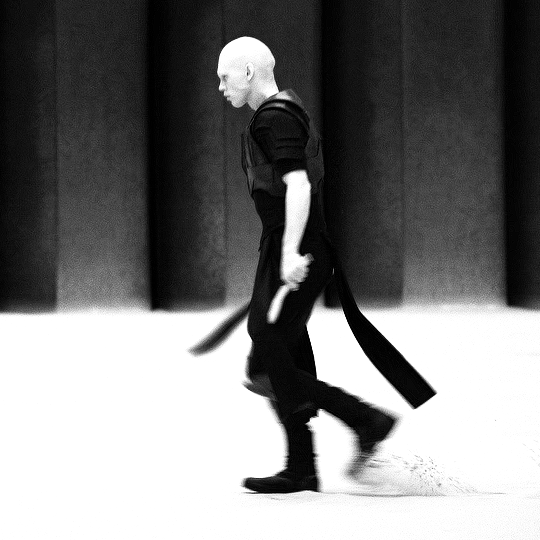
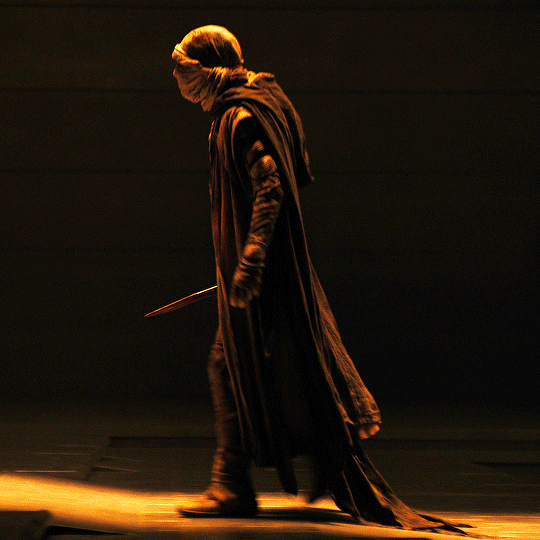
We’re Harkonnens. So this is how we’ll survive. By being Harkonnens.
3K notes
·
View notes
Text
I must not mock Gen Alpha. Mocking Gen Alpha is the mind killer. Mocking Gen Alpha is the little-death that brings total generational solidarity obliteration. I will engage with Gen Alpha lovingly. I will permit them to be cringe. And when they grow up I will turn my eye to their accomplishments. Where mocking has gone there will be nothing. Only generational solidarity remains
36K notes
·
View notes


